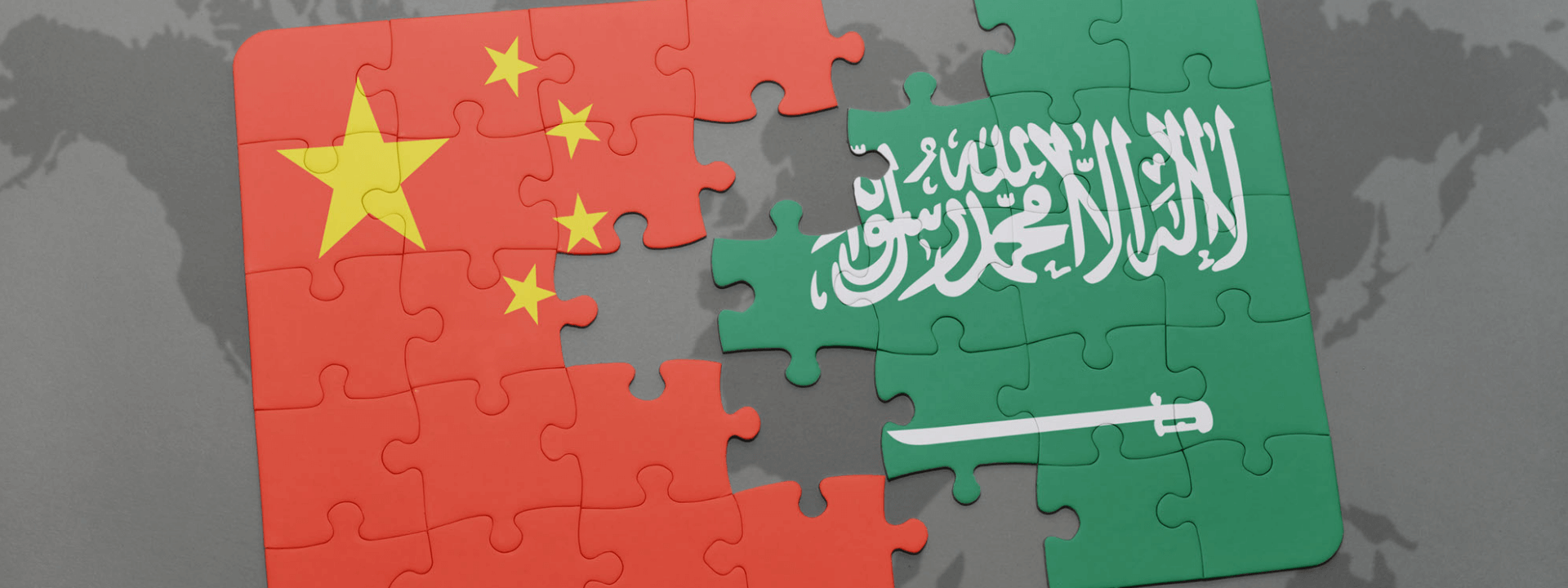Saudi Arabia Wants More Chinese Investment
By Wang Zili, Zhang Erchi and Zhang Ziyu


Saudi Arabia hopes to draw more investment from Chinese companies not only in crude oil and chemicals but across a slew of other industries — from mining, automobiles and property to digital infrastructure, renewables and cloud computing — as the kingdom seeks to diversify its economy.
For the oil-dependent Gulf country, digital transformation is needed, Saleh Khabti, a Saudi deputy minister for investment, said June 7 in an interview with Caixin before the 10th Arab-China Business Conference in Riyadh June 11–12.
More than 30 deals were signed at the conference covering industries including technology, renewables, real estate, minerals, supply chains, tourism and health care, according to the state-run Saudi Press Agency.
Both Saudi Arabia and its neighboring regions share huge demand for cloud services and hyper-scale data centers, Khabti told Caixin. The “unique location” of the kingdom at the junction of three continents “makes it feasible to establish a regional node” to serve the Middle East, North Africa and other countries that don’t have a large provider, such as Pakistan and Kazakhstan, he said.
Some Chinese tech brands have been swift to expand their footholds in the emerging market. Alibaba Cloud and Tencent Cloud have already entered the Saudi market and signed cooperation agreements with local telecom service providers.
Given the kingdom’s proximity to Europe and Africa, some Chinese investors are also looking to set up production bases for higher value-added goods using raw materials and other resources from the kingdom, Africa, and other regions, and exporting the finished goods, Khabti said.
“The unique location will allow the Chinese companies to have a second base to serve other markets,” the deputy minister said.
Saudi Arabia’s drive to attract foreign investment is part of a major economic transformation plan for the kingdom, known as Vision 2030, a strategic framework announced in 2016 to reduce the country’s dependence on oil, diversify the economy and develop services sectors. In 2021, the government announced plans to invest $3.2 trillion in the nation’s economy by 2030 as part of the strategy.
The kingdom has many attractions for foreign investors, Khabti said, including a young, robust workforce — roughly two-thirds of the population is under the age of 30 — and generous tax incentives for those setting up businesses in the country’s special economic zones.
The Investment Ministry has appointed 15 managers to help potential foreign investors navigate different sectors, he said.
During his visit to Saudi Arabia in December, Chinese President Xi Jinping told King Salman bin Abdulaziz Al Saud that he attaches great importance to developing stronger ties with the kingdom. Both sides said during the visit that they will try to achieve greater progress in their comprehensive strategic partnership.
“I believe the business community (in Saudi Arabia and China) should match those aspirations set forth by the leaders of the two countries,” Khabti said.
China is Saudi Arabia’s largest trading partner. Bilateral trade jumped 33% to $116 billion in 2022, according to Chinese customs data.
Read also the original story.
caixinglobal.com is the English-language online news portal of Chinese financial and business news media group Caixin. Global Neighbours is authorized to reprint this article.
Image: luzitanija- stock.adobe.com
